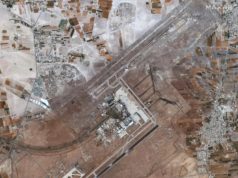On Monday al-Qaeda chief Ayman al Zawahiri disowned the rebel jihadist group Islamic State in Iraq and Syria (ISIS) and also referred to as Islamic State in Iraq and the Levant (ISIL), while retaining its formal links to Jabhat al Nusra (or the Nusra Front). ISIS had been fighting in Syria to control territory and implement its own form of Sharia law in both Iraq and Syria. Dissention among rebels groups had been going on for months, with ISIS refusing to work through independent Sharia courts and meting out extrajudicial sentences against its enemies. On Saturday ISIS, used suicide bombs to kill the leaders of two rival jihadist groups, prompting the unusual, though not unprecedented step by al-Qaeda of disavowing a fighting force.
The ripple effects of the disaffiliation and what it means for jihadi capabilities in the region and worldwide remain unclear. Despite the fact that the top leaders of al-Qaeda, including Osama bin Laden, have been taken out by American forces, according to NSA director James Clapper the organization remains as a major threat to Western, and specifically American interests because it has shifted to a franchise-minded and decentralized business model. For example, the al-Nusra front now carries the al-Qaeda corporate mantle in Syria and maintains civil relations with other rebel forces there, but it still reports to al-Qaeda chief Zawahiri.
While the transition to an “outsourced” structure had allowed the al-Qaeda name to survive,

Members of the al-Nusra Front in Syria. (Photo: AP) |
it also meant that the group ceded influence to other jihadist sects. ISIS, for example, had seemed more concerned with planning attacks on and participating in local regional conflicts to “liberate” territory and set up governments than it was in al-Qaeda’s signature plan of attacks against the United States.
As for the conflict in Syria and the bigger picture, it does not seem likely that ISIS will stop the infighting with other rebel groups. It appears ISIS has been able to procure independent sources of funding from oil fields, border tolls, and other extortive measures, making ties to al-Qaeda less important. Continued ISIS attacks could provide new energy to the Assad regime and his chief backer Iran. There has been speculation that Assad has at least a tacit agreement with ISIS and that Iran is funding the group to encourage its battle against other Syrian rebel forces. No concrete evidence has been found, however. In any event, the reach of ISIS is rapidly expanding from its base in Iraq to Syria and Lebanon making it a force to be reckoned with – with or without support from al-Qaeda.





